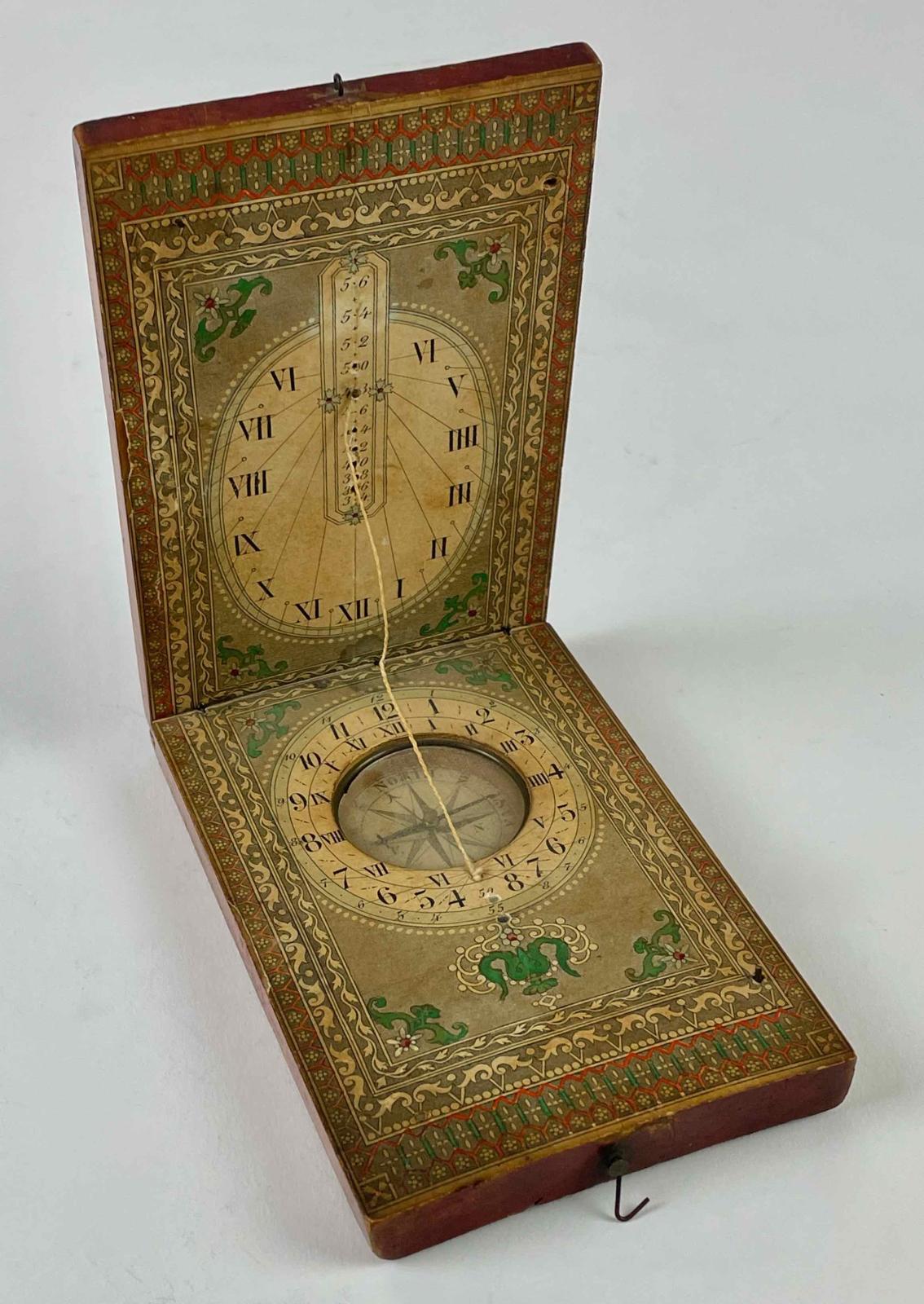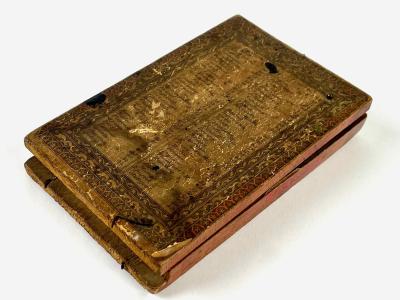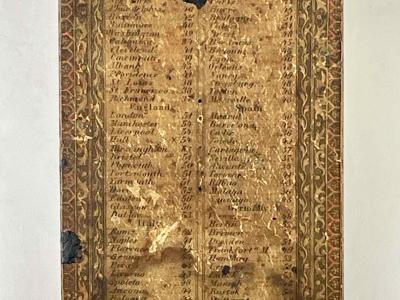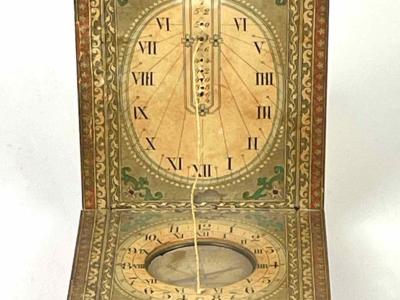Cased sundial
United States
1875-1900
Measurements
7/8 in x 5 in x 3-1/4 in
Materials
Probably maple or tulip poplar, iron, glass, printed paper
Credit Line
Historic Odessa Foundation, gift of H. Rodney Sharp
Accession Number
1959.3808
Inscription
70 American and European cities are listed on the outside cover paper. See "Comments" below.
Provenance
Ex coll. H. Rodney Sharp
Comments
This cased sun dial has a compass imbedded in the bottom board. The chapter ring printed on the surrounding paper bears Roman and Arabic numbers representing the hours of the day. Similarly, the inside paper on the hinged lid has Arabic numbers. The two clock dials are joined by a string, which serves as a gnomon (the angled metal rod on most sundials). Its shadow falls on the appropriate hour. To function, the sun dial is oriented to the north (compensating for magnetic north) with the compass. Lattitude differences require the sun dial to be tilted to compensate.
The printed outside cover lists cities and lattitudes in America (13), England (13), Italy (9), France (13), Spain (11), and Germany (11). The presence of Germany, unified in 1871, represents the latest obvious evidence of when this sundial was made. The colors and graphic design of the papers inside the folding sundial are classic examples of the late-19th century.



